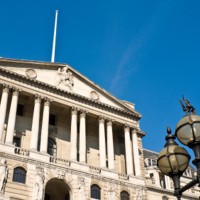
You could be forgiven for thinking that the members of the MPC have been asleep at the wheel for the last year, yet nothing could be further from the truth.
Over the course of 2010, the release of the MPC’s minutes has become something of a soap opera with no resolution in the plot that has gripped economists: would Adam Posen vote for a fresh round of quantitative easing (QE)? Would arch-hawk Andrew Sentance plump for an interest-rate rise once more?
In the end, neither was able to attract sufficient support for their positions from the other seven members. Their conflict has ended in a year of stalemate, but that shouldn’t mask a thoroughly creditable performance from most of the MPC’s members.
I can see why the MPC has been treading so carefully. Asia has bounced back quickly from the downturn – so quickly that governments are worried about the potential for what the Reserve Bank of Australia describes as a “large expansionary shock”, while in the West, most of the major economies remain nervous about the possibility of a double dip.
The two-speed nature of the global economic recovery made the task of the MPC more difficult.
Members tending towards the Posen position – that not to act now is to risk permanent damage to the UK’s growth prospects – noted the restraints being placed on better-performing economies could undermine their performance and their ability to help weaker countries out of the mire.
Those members in favour of the Sentance solution had to acknowledge that the chief worry unnerving countries such as Australia – commodity boom-fuelled inflation – was a potential concern here, too.
From my own point of view, I have some sympathy with Sentance’s position.
With higher petrol and commodity prices, and the forthcoming increases in domestic utility bills and rail transport costs, it seems a sensible option. After all, we can expect inflation to average 3% in 2011, a prospect that a number of MPC members are likely to find increasingly unsettling.
In the end, however, I think the MPC was right to reject any suggestion of upping the Bank rate. Businesses and consumers will soon be facing additional pressures when the government’s austerity measures start to bite. The MPC has taken a wait-and-see stance, given the way things are with the local and global economies. Yes, there are still risks to growth, but on the other hand things are much better than previously expected.
Despite positive economic news towards the end of 2010, risks of a setback will inevitably increase in the first half of 2011. Every effort must be made to minimise the danger of a downturn. So far, the MPC has also been right to ignore Posen’s calls for more QE, as inflation is simply too high.
However, threats to growth in the property and housing markets remain more serious than the dangers of higher inflation. If the recovery shows signs of faltering, the MPC must stand ready to consider further QE in 2011.
The members of the MPC haven’t been judged solely on their interest rate decisions in 2010, however.
When WikiLeaks revealed Mervyn King told the American ambassador in February that he was fearful the Tories (then in opposition) did not have a credible fiscal policy in place, critics called for his removal. Adam Posen also assailed King before the Treasury Select Committee for being too close to the Tories on fiscal policy.
I think King’s entry into the debate was entirely legitimate. In the run up to the election, King – rightly as it has turned out – was concerned that, while both Labour and the Conservatives were aware of the nation’s looming deficit and debt problems, no one had spelled out a credible plan for putting them right.
It would have been odd had King not told Cameron and Osborne that they would be wise to present the markets with a detailed breakdown of their intentions. Almost as surprising as it would have been had King not had some concern about two men with no ministerial experience taking charge of an economy at a time of unprecedented peacetime challenges.
To my mind, this episode reinforces how good Mervyn King has proven to be in 2010.
One of the attractive elements of having an independent Bank of England is that the governor can say publicly what he thinks without fear that he will be immediately sacked or reprimanded. King has not been shy about that at all this year. Good for him.
Richard Sexton is director of business development at e.surv

















